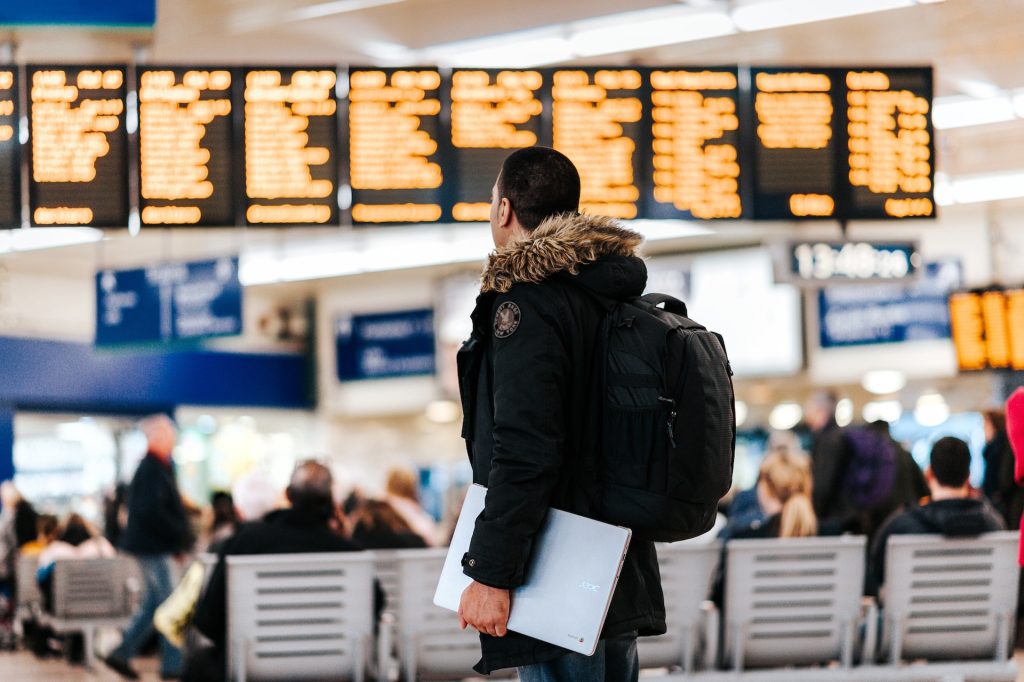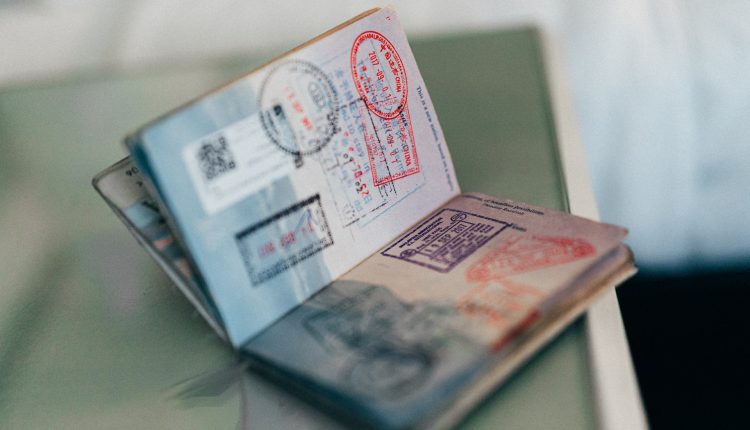Planning to visit or relocate to the United Kingdom? This guide is here to demystify the process and equip you with the knowledge you need to successfully understand and comply with the UK Visa Immigration Rules. Whether you’re visiting for leisure, studying, working, or settling down permanently, this article covers everything you need to know.
The UK Visa Immigration Rules form the foundation of the country’s immigration system. These rules define the eligibility criteria, application procedures, and requirements for individuals seeking to enter and stay in the UK legally. Understanding these rules is crucial to ensure a smooth and successful visa application process.
Categories of UK Visas
The UK offers various visas, including tourist visas, work visas, student visas, family visas, and business visas. Each visa type has its own set of requirements and associated fees. It’s important to identify the visa category that aligns with your purpose of travel to determine the applicable fees accurately. Let’s take a closer look at some of the most common visa categories:
1. Visitor Visas
If you’re planning a short visit to the UK for tourism, business meetings, or medical treatment, a Visitor Visa is appropriate. These visas have specific limitations on the duration and activities permitted.
2. Student Visas
Students aspiring to study in the UK must apply for a Student Visa. This visa category includes the Tier 4 (General) Student Visa and the Child Student Visa, depending on the age and educational level of the applicant.
3. Work Visas
Individuals seeking employment in the UK can apply for Work Visas. The most common types are the Tier 2 (General) Visa for skilled workers sponsored by UK employers, the Tier 5 Temporary Worker Visa, and the Innovator Visa for entrepreneurs.
4. Family Visas
UK residents or British citizens can sponsor their family members for Family Visas, which include Spouse Visas, Parent Visas, and Child Visas.
5. Settlement Visas
Also known as Indefinite Leave to Remain (ILR), Settlement Visas allow individuals to live permanently in the UK. These visas are typically granted after a certain period of lawful residence in the country.
Key Requirements for Visa Applications in the UK

To ensure a successful visa application, it is crucial to meet the specific requirements for each visa category. While the requirements may vary depending on the type of visa, here are some common factors to consider.
Financial Stability
Applicants must demonstrate their ability to financially support themselves during their stay in the UK. This includes providing bank statements, sponsorship letters, or proof of scholarships.
English Language Proficiency
For certain visa categories, such as Student Visas or Work Visas, applicants may need to prove their proficiency in the English language by taking a standardized test like the IELTS.
Health and Tuberculosis (TB) Screening
Some visa categories require applicants to undergo a medical examination and provide a certificate confirming their good health and freedom from tuberculosis.
Character and Criminal Record
Applicants must meet the character requirements set by the UK government, which include disclosing any criminal convictions or visa violations.
UK Visa Fees: Know the Costs and Payment Methods
Obtaining a UK visa involves understanding the associated fees and payment methods. By familiarizing yourself with the visa application fees, including the application fee, Immigration Health Surcharge (IHS), and any additional service charges, you can plan your budget accordingly. Remember to consider the available payment methods and ensure that you have the necessary funds and payment receipts as proof. It’s also important to explore any fee exemptions or refund options that you may be eligible for. By being well-informed and prepared, you can navigate the UK visa process smoothly and focus on your travel plans.
When applying for a UK visa, there are different fees involved, and it’s crucial to comprehend their breakdown. The fees generally include the application fee, the Immigration Health Surcharge (IHS), priority or premium service fees (if applicable), and any additional services or endorsements you may require.
Application Fees
The application fee is the primary cost associated with applying for a UK visa. It varies depending on the visa category and the duration of your stay. Generally, the fees are higher for long-term visas compared to short-term ones. It’s advisable to check the official UK government website or consult with a qualified immigration advisor to determine the exact fee for your specific visa type.
Immigration Health Surcharge
Most visa applicants are required to pay the Immigration Health Surcharge (IHS). The IHS grants you access to the National Health Service (NHS) during your stay in the UK. The surcharge amount depends on the length of your visa and must be paid upfront. It’s essential to factor in the IHS fee while planning your budget for the UK visa application.
Priority and Premium Services
If you require expedited processing or additional services, such as premium lounge access or document translation, you may opt for priority or premium services. These services come at an additional cost, allowing you to fast-track your application or avail of extra conveniences. The fees for these services vary depending on your location and the specific services requested.
Different Payment Methods for Applying for UK Visa

To make the payment process convenient, UK visa applicants have multiple payment methods available. The accepted payment methods may vary based on the country of application, but commonly include the following options:
1. Debit or Credit Cards
Most visa application centers accept payments through major debit and credit cards. Ensure that your card is eligible for international transactions and has sufficient funds to cover the fees.
2. Online Payment Platforms
Some countries provide online platforms for visa fee payments, allowing you to make transactions securely. These platforms usually offer multiple payment options, including bank transfers and digital wallets.
3. Bank Drafts or Money Orders
In certain cases, visa applicants may be required to submit bank drafts or money orders. These payment methods offer a secure and traceable way of paying the visa fees.
It’s essential to check the specific payment methods accepted by the visa application center in your country of residence. Make sure to retain the payment receipt as proof of payment, as you may need to present it during your visa application process.
Fee Exemptions and Refunds
While most visa applicants are required to pay the prescribed fees, certain individuals may be eligible for fee exemptions or refunds. It’s crucial to review the eligibility criteria and guidelines provided by the UK government to determine if you qualify for any exemptions. Common examples include diplomatic and government officials, individuals traveling for official purposes, or applicants under specific international agreements. In case your visa application is rejected or withdrawn, you may be eligible for a partial refund of the fees paid. it’s important to note that the refund policies and procedures may vary depending on the specific circumstances and the visa category. It’s advisable to refer to the official guidelines or consult with the relevant authorities for accurate information regarding fee exemptions and refunds.
Frequently Asked Questions (FAQs)
How long does it take to process a UK visa application?
The processing time varies depending on the visa category and the volume of applications. It can range from a few weeks to several months. It’s advisable to apply well in advance of your intended travel date.
Can I work in the UK while on a Student Visa?
Yes, students on Tier 4 (General) Student Visa are generally allowed to work part-time during term periods and full-time during vacations. it’s important to check the specific work restrictions and limitations associated with your visa.
What are the financial requirements for a Family Visa?
To sponsor a family member for a Family Visa, the sponsor must meet certain financial thresholds to demonstrate their ability to support their family member in the UK. The specific requirements depend on the number of dependents and the applicant’s circumstances.
Can I switch from a Visitor Visa to a Work Visa within the UK?
A: In most cases, it is not possible to switch from a Visitor Visa to a Work Visa while in the UK. It’s important to plan your immigration route accordingly and apply for the appropriate visa before traveling to the UK.
Can I extend my visa while in the UK?
It may be possible to extend your visa while in the UK, depending on your current visa category and circumstances. It’s crucial to consult the official UK government website or seek professional advice to understand the specific requirements and procedures for visa extensions.
What happens if my visa application is refused?
A: If your visa application is refused, you may have the option to appeal the decision or reapply with additional supporting documents. It’s important to carefully review the reasons for refusal and seek professional advice to determine the best course of action.
Can I pay the visa fees in cash?
No, cash payments are generally not accepted for visa fees. You should use one of the accepted payment methods, such as debit or credit cards, online platforms, or bank drafts.
Are the visa fees refundable if my application is rejected?
In certain cases, a partial refund may be available if your visa application is rejected or withdrawn. the refund policies and procedures vary depending on the circumstances and visa category. It’s advisable to review the official guidelines or consult with the relevant authorities for accurate information.
Can I pay the visa fees in installments?
Generally, visa fees are required to be paid in full at the time of application. Payment in installments is not commonly accepted. Specific exceptions or arrangements may be available for certain visa categories. It’s advisable to check the official guidelines or consult with the visa application center for more information.
Can I get a refund if I cancel my visa application?
Refunds for canceled visa applications are typically subject to specific policies and procedures. It’s important to review the guidelines provided by the UK government or consult with the relevant authorities to understand the refund options available in such cases.
Do I need to pay the Immigration Health Surcharge (IHS) separately?
Yes, the IHS is a separate fee and must be paid in addition to the visa application fee. It grants access to the National Health Service (NHS) during your stay in the UK and must be paid upfront.
Conclusion
Understanding the UK Visa Immigration Rules is essential for a successful and stress-free journey to the United Kingdom. By familiarizing yourself with the different visa categories, requirements, and application procedures, you can ensure a smoother visa application process. Remember to carefully review the specific rules and seek professional advice if needed to increase your chances of a positive outcome.


